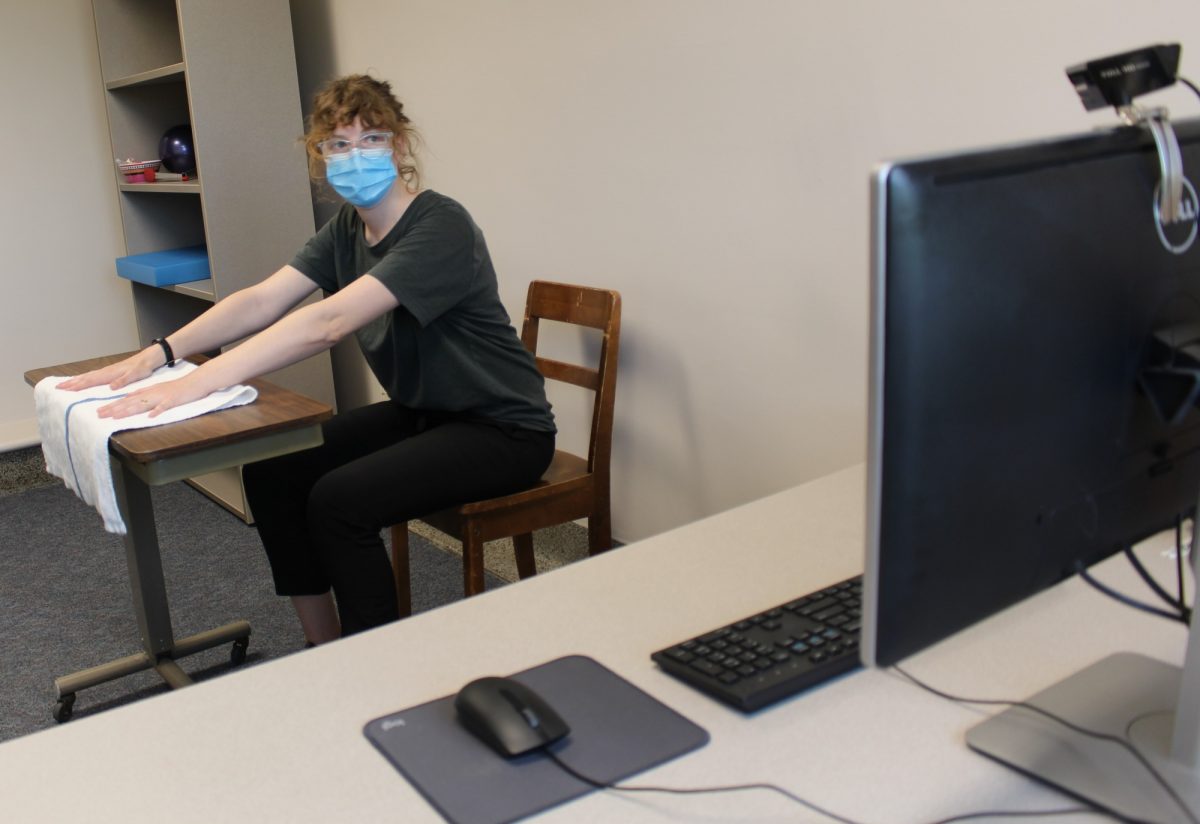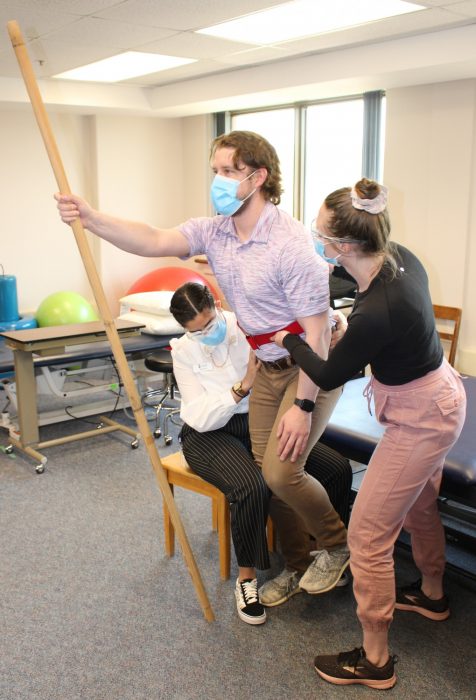
Physical therapy student Rebecca Olfert at the telerehab clinic at Riverview Health Centre.
Tele-rehabilitation enables virtual physio, outreach beyond perimeter
As part of a new collaboration called Rural Rehabilitation Outreach, the College of Rehabilitation Sciences, Rady Faculty of Health Sciences moved its Physical Therapy Neuro Rehab Clinic from UM’s Bannatyne Campus to Riverview Health Centre on April 11.
The expanded student-led clinic is on a new unit on the fourth floor of Riverview Health Centre that will see patients both in-person and virtually, using tele-rehabilitation, a model that allows patients to receive treatment and interact with providers virtually from anywhere in the province.
In the clinic, students provide treatment to people with sub-acute and chronic neurological conditions, such as Parkinson’s disease, multiple sclerosis, brain injuries and stroke.
The tele-rehab functionality is available to patients who have internet access and a portable device. It allows for treatment in someone’s home, which offers advantages over in-person, clinic-based treatment.
Physical therapy (PT) department head Dr. Mark Garrett said tele-rehab will allow the clinic to outreach beyond the perimeter and to populations like Indigenous communities who may have limited access to rehabilitation services.
“Tele-rehab is an invaluable service delivery method for clients who are unable to travel to the clinic because they live in a geographically remote area of the province that lacks local rehab services or because of transportation barriers,” Garrett said.
“The exciting thing about this hybrid model is that about 40 per cent of the patients our students are seeing are through tele-rehab,” said Kathleen Klaasen, chief executive officer at Riverview Health Centre. “I think that speaks to the demand for this service and for physiotherapy in general.”

Students practice physical therapy skills at the Neuro Rehab Clinic at Riverview Health Centre.
Klaasen said the clinic will be beneficial for Riverview, which has a 30-bed stroke rehabilitation unit and an acquired brain injury unit – both the only units of their kind in Manitoba.
“We need tele-rehab, because often when people are discharged and return home, it is difficult to have ongoing rehab,” Klaasen said.
Sarah Conci, physiotherapist, clinic coordinator and program instructor, oversees students at the clinic along with physiotherapist Shalyn Cosgrove. She said the program is goal-oriented requiring students assess and treat clients to meet their goals.
“The variety of conditions that we see and the ability levels are so varied. We see clients working on being able to hold their head up to interact more effectively with their environment to clients who want to run and play with their kids,” Conci said.
The neuro rehab program has been operating since 2003. Sixteen PT students per year currently complete placements there, and that number will grow as additional health professional programs from the College of Rehabilitation Sciences come on board.
Second-year PT students Rebecca Olfert and Shahd Khawashki were among a group of eight students that recently finished a six-week fieldwork placement at the clinic. Olfert said the student-run concept of the clinic allows for a unique learning environment.
“As a last placement, it’s nice to have a lot more independence, but instructors and supervisors are always there for us to ask questions and help us out when needed,” she said.
“Tele-rehab is certainly a valid way to deliver treatment, especially when patients can’t come into the city or to the clinic and they’re missing out on their treatment. They can still get effective helpful treatment from home,” added Khawashki.






